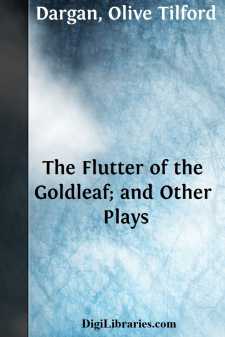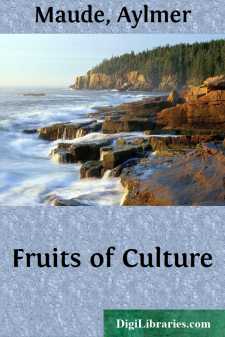Drama Books
Sort by:
by:
Eugene Walter
EUGENE WALTER (Born, Cleveland, Ohio, November 27, 1874) When questioned once regarding "The Easiest Way," Mr. Eugene Walter said, "Incidentally, I do not think much of it. To my mind a good play must have a tremendous uplift in thought and purpose. 'The Easiest Way' has none of this. There is not a character in the play really worth while, with the exception of the old agent. The...
more...
The Story Of The Love Of Alcestis. Asclepius, the son of Apollo, being a mighty physician, raised men from the dead. But Zeus was wroth that a man should have such power, and so make of no effect the ordinance of the Gods. Wherefore he smote Asclepius with a thunderbolt and slew him. And when Apollo knew this, he slew the Cyclopés that had made the thunderbolts for his father Zeus, for men say that...
more...
by:
Arnold Bennett
ACT I SCENE I Front room on ground floor at 126 Redcliffe Gardens. An apartment furnished richly but in an old-fashioned way. Fine pictures. Large furniture. Sofa near centre. General air of neglect and dustiness. Carpet half-laid. Trunks and bags lying about in corners, some opened. Men's wearing apparel exposed. Mantelpiece, R., in disorder. At back double doors (ajar) leading to another room....
more...
HUGH HENRY BRACKENRIDGE (1748-1816) The battle of Bunker's Hill was an event which stirred whatever dramatic activity there was in America at the time of the Revolution. Therefore, a play written on the subject should not be omitted from a collection supposed to be representative of the different periods in American history and in American thought. The reader has an interesting comparison to make...
more...
by:
Horace Holley
INTRODUCTION The first two or three of these "plays" (I retain the word for lack of a better one) began themselves as short stories, but in each case I found that the dramatic element, speech, tended to absorb the impersonal element of comment and description, so that it proved easier to go on by allowing the characters to establish the situation themselves. As I grew conscious of this...
more...
THE FLUTTER OF THE GOLDLEAF Scene: Laboratory in the attic of the Warner cottage. At right, toward rear, entrance from down-stairs. A rude partition, left, with door in centre. Window centre rear. Large kitchen table loaded with apparatus. Shelves, similarly loaded, against wall near table, right. Wires strung about. A rude couch, bench, and several wooden chairs. Time, about 8 p.m. Lamp burns on...
more...
ACT I The garden of IVANOFF'S country place. On the left is a terrace and the facade of the house. One window is open. Below the terrace is a broad semicircular lawn, from which paths lead to right and left into a garden. On the right are several garden benches and tables. A lamp is burning on one of the tables. It is evening. As the curtain rises sounds of the piano and violoncello are heard....
more...
by:
Aylmer Maude
CHARACTERS LEONÍD FYÓDORITCH ZVEZDÍNTSEF. A retired Lieutenant of the Horse Guards. Owner of more than 60,000 acres of land in various provinces. A fresh-looking, bland, agreeable gentleman of 60. Believes in Spiritualism, and likes to astonish people with his wonderful stories. ANNA PÁVLOVNA ZVEZDÍNTSEVA. Wife of LeonÃd. Stout; pretends to be young; quite taken up with the conventionalities...
more...
by:
Upton Sinclair
ACT ISCENE I[Shows a primeval forest, with great trees, thickets in background, and moss and ferns underfoot. A set in the foreground. To the left is a tent, about ten feet square, with a fly. The front and sides are rolled up, showing a rubber blanket spread, with bedding upon it; a rough stand, with books and some canned goods, a rifle, a fishing-rod, etc. Toward centre is a trench with the remains...
more...
MR. AND MRS. EDWARD ROBERTS; THE CHOREWOMAN Mrs. Roberts, with many proofs of an afternoon's shopping in her hands and arms, appears at the door of the ladies' room, opening from the public hall, and studies the interior with a searching gaze, which develops a few suburban shoppers scattered over the settees, with their bags and packages, and two or three old ladies in the rocking-chairs. The...
more...











